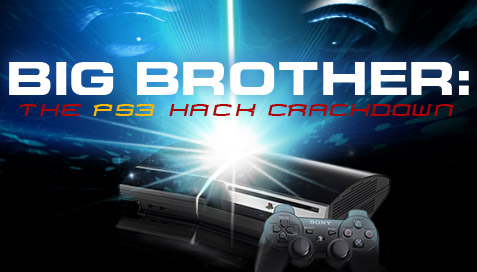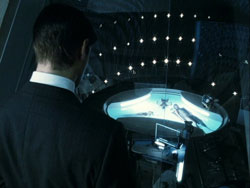
02/11/2011
Games Channel / Entertainment Channel / Bullz-Eye Home
Last week, Sony launched a legal campaign that could shape the interpretation of law surrounding copyrighted material and the devices used to view that material. The target: George Hotz, a twenty something hacker from New Jersey who has made a name for himself by cracking virtually every single iOS release from Apple, allowing iPhone owners to jailbreak the phone. Hotz's most recent project was the Sony PS3, which he was finally able to crack after another hacking team released a limited version of the new root hack back in December. According to Sony, Hotz is in violation of the Digital Millenium Copyright Act by “distributing” a hack meant to circumvent the protections around copyrighted material.
The short version of the story is that Sony wants ownership of the PS3 hardware and software, even after it has been purchased. It's a battle that Apple fought and lost back in July, a battle that was also prompted by George Hotz and his famous hacking skills. Apple tried to have the practice of jailbreaking the iPhone outlawed, an attempt that was ultimately denied in a court of law. It was a big win for consumers. After all, once the device is paid for, shouldn't the consumer determine what he wants to do with it?
 Part of the problem with the ownership discussion is that companies like Sony and Apple have always tied pirating to the hacking process, and that's not necessarily fair. Just because a user can hack a device to pirate software doesn't mean the user will. As such, a ruling against jailbreaking or hacking is essentially preemptive law, the kind of stuff we saw in “Minority Report.” The actual process of hacking doesn't steal anything; it simply opens up new potential for a device. As a crude analogy, legislating against this kind of hacking is like legislating against martial arts training because those skills might one day be used for a violent crime.
Part of the problem with the ownership discussion is that companies like Sony and Apple have always tied pirating to the hacking process, and that's not necessarily fair. Just because a user can hack a device to pirate software doesn't mean the user will. As such, a ruling against jailbreaking or hacking is essentially preemptive law, the kind of stuff we saw in “Minority Report.” The actual process of hacking doesn't steal anything; it simply opens up new potential for a device. As a crude analogy, legislating against this kind of hacking is like legislating against martial arts training because those skills might one day be used for a violent crime.
As our everyday devices become more technologically advanced, this will become a bigger and bigger issue. The gaming consoles on the market today are actually robust computers that can be purchased for a fraction of the price of a PC with similar specs. The ability to “root” the device could put the full potential of the product into the hands of the consumer, allowing hacks to create media servers, web enabled computers, and of course, games that were not originally intended for the system. Yes, that means pirated games, but it also means homebrew games, titles developed by the user community.
A perfect example of the unused potential of consumer devices is the Barnes and Noble ereader, the Nook. The Nook's out-of-box feature list is pretty short. The color version offers access to a couple puzzle apps, like Sudoku or Chess, and there is of course access to ebooks, but by rooting the device, a user can turn the Nook into a full-fledged Android tablet, complete with the Android marketplace. Granted, the hack voids the warranty, but the risk might be worth the $250 price break off Apple's iPad. As with the iPhone, this hack is still legal.
Also problematic in this debate is technological savvy of the decision makers. At 21, George Hotz may be the most technically adept person involved in this lawsuit. He might be the only person, outside a couple of Sony reps, who understands how the hack works and the possibilities it opens up at a fundamental level. That's a huge problem. The judge is then stuck trying to determine whether Sony's damage claim is actually tied to illegal activity on Hotz's part, activity the judge doesn't understand. The district judge assigned to the case, Susan Illston, has most notably made rulings on cases involving advertising on a high school athletic fence and presided over a perjury case for Barry Bonds. She also ruled that DVD copying software intended, as the company stated, to circumvent copy protection, was illegal. The case was so cut and dry she could have made the ruling over her morning coffee. That's definitely not the list of qualifications I want for the person that could decide the future of digital ownership.
As the world becomes increasingly technical, we're going to see more and more cases like this pop up. My own advice would be to stay informed and spend your money wisely. For my part, I won't be making any Sony purchases until I know that Sony's ownership rights stop the moment cash changes hands.
You can follow us on Twitter and Facebook for content updates. Also, sign up for our email list for weekly updates and check us out on Google+ as well.










